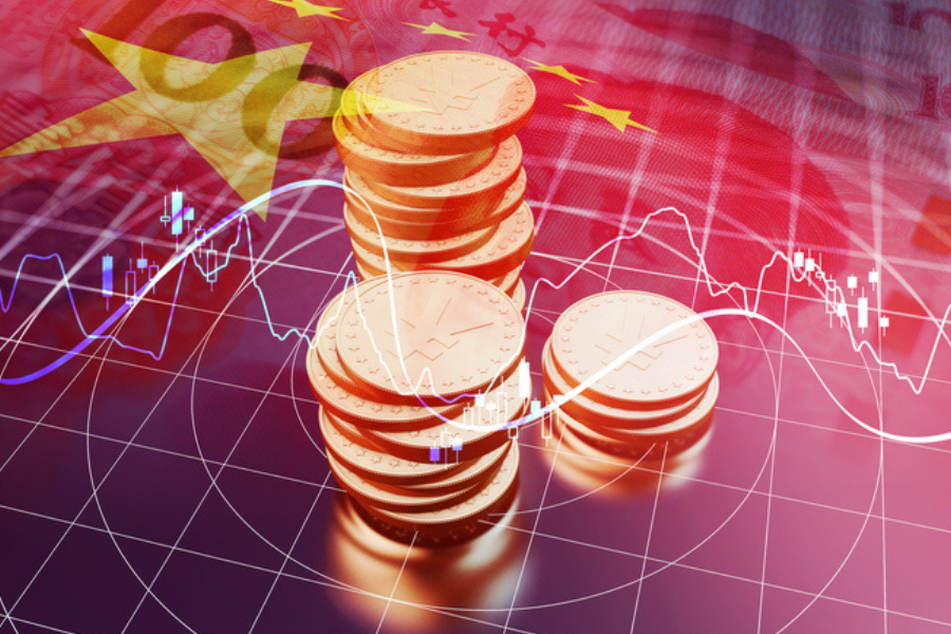China’s growth outlook is not looking good

Beijing may be forced to increase stimulus for the world's second largest economy.
China’s economic recovery remained beleaguered by weak demand and a lingering property crisis last month, putting more pressure on Beijing to roll out supportive policies to juice growth.
While industrial output and retail sales expanded in November, according to the official data released Friday, those numbers were distorted by favorable comparisons to a year ago when Covid lockdowns throttled activity.
In reality, analysts said both measures of economic activity weakened last month, when compared to more typical periods. Turmoil in the property sector continued to weigh on the overall outlook, as indebted developers struggle to sell enough new homes.
“Discounting the base effect, it’s obvious that China’s economy slowed further in November, especially in terms of retail sales and property,” said Larry Hu, head of China economics at Macquarie Group Ltd.
Investment in property development has plunged 9.4% so far this year, according to government figures. A slump in home prices deepened, too, with those in the secondary market falling by the most in nine years.
China’s onshore stocks erased increases in the morning session to trade down 0.3% as of 2:20 p.m. local time. The Hang Seng China Enterprises Index pared gains to 2.3%.
President Xi Jinping’s government is under pressure to ramp up supportive measures for the economy, as expectations mount for an ambitious growth goal in 2024. The nation’s post-pandemic recovery has been hampered by a lingering real estate crisis, while deflationary pressures are a sign of stubbornly weak consumer confidence.
Last month’s data is unlikely to convince investors that the stimulus unleashed so far this year has been sufficient. For example, Hu, the Macquarie economist, said retail sales actually fell 1.9% last month from October on a sequential basis, according his calculations. That compared to double digit year-on-year growth in the official data.
Louis Kuijs, chief economist for Asia Pacific at S&P Global Ratings, estimated growth in retail sales, industrial output and fixed-asset investment all weakened across the board in November from October, when compared to levels in 2019.
“It’s very hard to see the economy growing significantly or people’s confidence improving significantly,” said Kuijs. “More needs to be done apparently, just looking at how dire the situation is.”
| Other key data: |
| Growth in fixed-asset investment was 2.9% in the first 11 months of the year, versus a forecast 3% gain The urban jobless rate was unchanged at 5% Industrial output rose 6.6% y/y, versus a median estimate for a 5.7% increase Retail sales expanded 10.1%, slower than a projected 12.5% jump |
The weak data came as the People’s Bank of China on Friday made the biggest net injection of cash via a one-year policy tool on record. That move will give banks more money to buy government bonds issued to support infrastructure spending.
Analysts said the injection decreased the chances of an imminent cut to the required amount of money banks must hold, a number known as the reserve ratio requirement. Some also questioned whether the liquidity injection would bolster an economy battling downbeat corporate and consumer sentiment.
Increasing liquidity is not “enough if there is no willingness to spend or to invest,” Kuijs added.
Ensuring indebted developers deliver houses to citizens — who often buy properties before they’re built — and further cuts to mortgage rates to boost sales, are two steps that could stabilize the sector. Fresh purchases could ease developers’ cash flow and break expectations of a downward spiral in home prices.
The focus is now on the ruling Communist Party’s plans to boost growth in 2024. At two recent conclaves on next year’s economic policy, top leaders emphasized they will seek “progress” and strengthen fiscal policy “appropriately.” That fueled expectations top leaders may set an ambitious growth target of about 5% and expand the budget deficit again.
Still, the November data will be “sufficient” to assure China meets its official target this year, according to Xing Zhaopeng, a senior strategist at Australia & New Zealand Banking Group.
“Now, the biggest question to the market will be next year’s growth target, which will be disclosed in March,” he said, predicting that China’s central bank will step up efforts to address “the headwinds.”
Learn more about reprints and licensing for this article.








